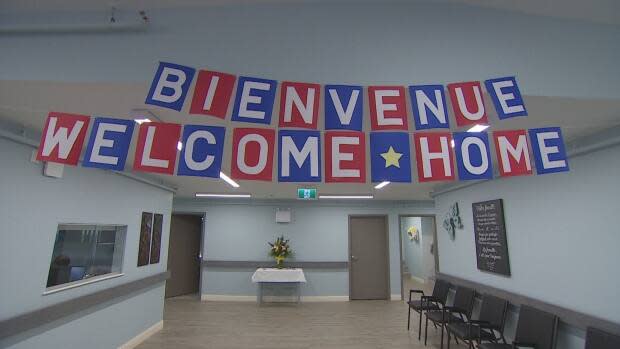Chez-Nous offering $5K signing bonus for bilingual nurses, cash for Islanders who help

Chez-Nous seniors' home in Wellington, P.E.I., is offering cash bonuses for bilingual registered nurses and Islanders who help recruit them.
The home is offering up $5,000 for registered bilingual nurses they hire — and $1,500 is being given to Islanders who refer nurses who get a job there.
Four to five bilingual nurses are the priority, said Gilles Panchaud, the president of the board that oversees the home.
"Reason being I say four to five, because when we count the number of people, depending on if they work part time or what have you, it could be we need to fill in four and a half positions."
The bonus would be given to the nurse upon their hiring, but Panchaud said the expectation is they work for the manor long term.
More beds
It's all in an effort to staff 12 long-term care beds. There was staff in place, but a fire back in January of 2021 put things on hold.

"The unit was built then we went and looked for staffing people to staff the unit and that. Which we had a target date of March 2021," Panchaud said.
"We ended up having a fire in our residence so the people we had in line to come to work for us obviously had to go. We obviously couldn't offer the jobs anymore so they had to find work somewhere else."
The hope is for the new long-term care beds to be staffed by June 1. The deadline for applications is March 18.
Recruiting difficult
However, recruiting French and bilingual nurses to the Island isn't easy.
Nicole Arsenault Bernard works with La Coopérative d'intégration francophone de l'Île-du-Prince-Édouard, Prince Edward Island's francophone integration co-operative.

"The issue that we are having is we know there is an English language proficiency policy on P.E.I.," Arsenault Bernard said, adding it isn't a P.E.I. specific problem — other provinces have the same policy in place.
It can be especially difficult for international recruitment, she said.
"On top of that their requirement to get their credentials as nurses recognized in Canada and P.E.I., it's a lengthy process. The way it is set up now it is a minimum of two years," Arsenault Bernard said.
"I personally spoke with a few of them, quite a few actually, and their English is pretty decent, like for a lot of them they could communicate, they could understand me, I could understand them."

However she said if the Island lowered the requirements to pass the test by a point or two it could make many more bilingual nurses eligible to work on P.E.I.
"My own personal opinion is that the current requirements for the proficiency policy, they are too high. They could be lessened by a point or two and it wouldn't affect public health safety."
She understands the policy is in place to make sure people in the medical field can accurately communicate on the job and document what is happening — but she still thinks the test is too hard.
Arsenault Bernard said she has heard of bilingual Islanders who didn't pass the exam.
CBC News contacted the province's Health Department to see if there is any consideration being given to lowering English language requirements, but did not receive a response.

